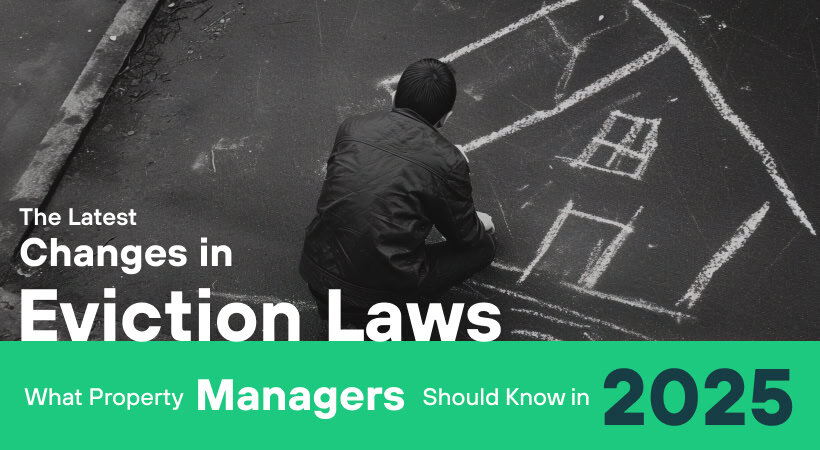Key Takeaways
Understand recent changes to eviction notice periods and procedures.
Stay informed on state-specific eviction legislation updates.
Adjust your internal timelines to avoid legal consequences.
Communicate changes to residents clearly and respectfully.
Prepare documentation that meets new compliance standards.
In the aftermath of the COVID-19 pandemic, the federal government took unprecedented steps to protect tenants facing financial hardship. Among these was a requirement, put in place by the CARES Act, that landlords of federally subsidized housing provide a 30-day notice before initiating eviction for nonpayment of rent. This rule applied to public housing authorities, properties with federally backed mortgages, and homes rented to housing voucher recipients.
Now, years later, the conversation around that rule is heating up again, and property managers need to be paying attention.
What the 30-Day Rule Meant—and Why It Mattered
The 30-day notice requirement was designed to give tenants additional time to either catch up on rent, access rental assistance programs, or make alternative housing arrangements. For property managers, it added a layer of procedural responsibility, but one that aligned with broader public efforts to prevent widespread displacement during a national crisis.
HUD made the rule permanent for several federally subsidized housing programs through a final rule issued in December 2024, with an effective date of January 13, 2025. It reflected a shift in federal housing policy toward more tenant-protective measures and gave residents a predictable timeline to respond to nonpayment notices.
The February 2025 Legislative Push to Roll It Back
In February 2025, Senators Cindy Hyde-Smith (MS) and Bill Hagerty (TN) introduced the “Respect State Housing Laws Act” (S.470), a bill aimed at eliminating the 30-day federal notice mandate. The proposed legislation argues that eviction processes should be governed at the state level, not by a one-size-fits-all federal regulation.
The bill has received backing from major landlord and property management associations, who argue that:
- The federal requirement conflicts with some state laws.
- It complicates property operations, especially for owners managing multiple types of housing.
- Landlords already face tight margins, and delays in regaining possession can have real financial consequences.
On the other side of the debate, tenant advocacy groups have raised concerns that removing this requirement would:
- Lead to sudden evictions in states with minimal notice periods.
- Disproportionately impact low-income tenants and families in subsidized housing.
- Increase the risk of housing instability and homelessness.
As of now, the bill is under congressional review and has not yet become law.
Why This Matters for Property Managers
Whether or not the bill passes, this conversation highlights a core responsibility for property managers: staying current with housing laws and compliance requirements.
Here’s why it’s crucial:
Avoid Legal and Financial Risk
Failure to comply with federal or state eviction laws can lead to:
- Lawsuits
- Regulatory fines
- Delays in the legal eviction process
- Damage to your company’s reputation
Protect Your Residents and Your Operations
A well-informed manager can implement fair and consistent processes that support both the business and the people living in the community. Clear notice procedures, written documentation, and transparent communication help reduce conflict and misunderstandings.
Demonstrate Professionalism and Due Diligence
Following housing legislation, especially evolving policies like these, sets your operation apart as a responsible, proactive, and ethical management company. It builds trust with residents and investors alike.
Best Practices Moving Forward
Stay Informed
Monitor updates from HUD, Congress, and industry associations. Subscribe to alerts or work with legal counsel to track changes.
Know Your Housing Type
Understand whether your properties fall under public housing, federally backed mortgages, or subsidy programs like Section 8—and what specific rules apply.
Review Your Eviction Processes
Ensure your notices and timelines align with federal, state, and local laws. Train your team accordingly.
Consult Experts When Needed
Don’t guess when it comes to compliance. Work with legal or compliance professionals if you’re unsure about how new legislation affects your property.
Final Thoughts
The evolving landscape of housing law is a reminder that property management isn’t just about leasing units and collecting rent—it’s about navigating the legal and ethical responsibilities that come with housing people.
Regardless of how the “Respect State Housing Laws Act” moves through Congress, now is the time to double-check your procedures and make sure you’re in full compliance. Good management isn’t just about protecting property, it’s about protecting people, too.











